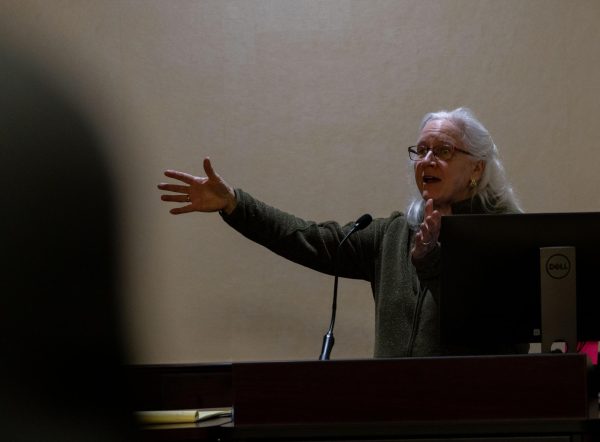TItle IX policy updated
March 4, 2014
WKU’s sexual assault Title IX policies are finally getting a facelift, becoming more streamlined and easier for victims of harassment and assault to find the help they need.
These policy adjustments come after the White House issued their report on rape and sexual assault this January.
“Change still needs to come from many quarters: schools must adopt better policies and practices to prevent these crimes and to more effectively respond when they happen,” the report said.
Huda Melky, director of the Equal Opportunity Department, added “Title IX coordinator” to her list of responsibilities, a title she said she is ready to take on due to its importance.
“The policies have always been there, but now I’m just bringing all the pieces together,” she said.
The new Title IX policies include the addition of an official coordinator who will oversee every aspect of an investigation. The coordinator will be assisted by several deputies, who serve to bridge the gap between students and administrators.
Melky is no stranger to dealing with sexual assault cases, having done so at the university level for more than15 years.
Passed in 1972, Title IX is a portion of the Education Amendments. It states that “no person in the United States shall, on the basis of sex, be excused from participation in, be denied the benefits of, or be subjected to discrimination under any education program or activity receiving federal financial assistance.”
Typically, the policy is associated with athletic departments and equality among men’s and women’s sports. However, Melky emphasized Title IX covers much more than sports.
“Title IX is not just about athletics, but people frequently hear about it in the context of sports,” Melky said. “These changes impact everyone.”
Thirty-eight percent of female rape victims experience assault between the ages of 18 to 24. Another 14 percent of victims were aged 25 to 34, according to the White House report. One in five women has been sexually assaulted while in college.
Deborah Wilkins, general counsel and Chief of Staff, is enlisted as a deputy for the Title IX revamp.
“The deputy coordinators are there so if anyone needs help, they can call one of us and we’ll help keep things moving,” she said. “We’re not getting a stipend or salary adjustment, it’s become part of our job duties.”
Investigating claims in a timely manner, stopping connection between the victim and accused, preventing further assaults and remedying the situation – both physically and emotionally – are the key foundations for the updated policy, Melky said.
“The problem with these kinds of assaults is that women, and men, don’t know how to report it,” she said.
Informational brochures are being made and will eventually be distributed to all staff members, faculty, students, even visitors, Melky said.
“We want to make sure the dissemination process is both internal and external,” she said.
The university has provided incoming freshmen with sexual assault and harassment information for several years, Melky said. However, a majority of students never expect that they would be assaulted. Instances where drugs or alcohol are used to incapacitate victims have increased over the last several years, the White House report said.
“When it happens to them, we want to expedite the process and make it easier on them,” Melky said.

























